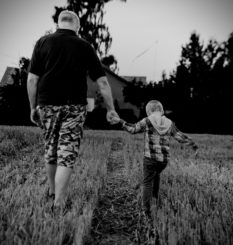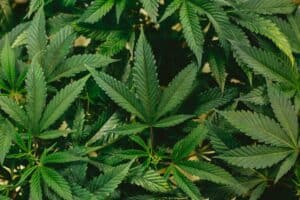
If the revolution doesn’t start at home, it will never last outside of the home. I kept thinking this during the worldwide Women’s March on January 21st, 2017. I was radically inspired and empowered by the intersectional visions and politics of the Women’s March organizers, and it became clear to me that it is time for male-identified Christian activists to bring the kingdom of heaven here on earth, and at home, by taking up intersectional feminism.
I came back from D.C. with the understanding that most white cis men (men who identify with the gender that they were assigned at birth) voted for Trump. As Berkley Carnine, an anti-racist activist friend of mine, said, “A lot of men that voted for Trump voted for him because of their desire for white supremacy, a return to monarchy and control over women’s bodies as to ensure the purity of the white race. But that insanity seems rooted in this violent protection of privilege and need to be right, and also feeling shamed for privilege instead of seeing the possibility of an identity that is feminist, anti-racist and liberatory—an identity that includes them and their own liberation.”
It is easy to put the blame on white male Trump supporters, but how many male-identified activists do we know that are good at being feminist in public, are great out on the streets or during consensus meetings, but leave their activist principals at the door when they get home? I can’t answer for all of you, but I can answer for myself. I am one of those: a male activist that perpetuates that behavior.
Understanding this, and knowing that I needed to work on my male privilege, in 2014 I helped to organize a group called PBOP (Primary Beneficiaries of Patriarchy) in Flagstaff, Arizona (Dineh/Navajo Territory). PBOP is a male-identified feminist group. We have five main points that guide our collective:
-
Understanding Privilege
It is important for white men to acknowledge the existence of settler cis white male privilege in the world. This means that the descendants of Europeans, who stole the land from indigenous peoples and built their homes and country on that indigenous land, have privilege whether they recognize it or not.
-
Accountability
What does it mean for a cis guy to work toward a consistent feminism? There is a real need for support for men who are trying to live counter to a patriarchal society. We understand that violence likes to be kept in the dark, and so it is important to be honest about how being raised as a socialized male affects us in our everyday lives, and how we perpetuate violence and privilege.
-
Perfectionism
One of the main ideals of white supremacy is perfectionism. PBOP understands that the fight against white supremacy and patriarchy needs to be honest, and we feel it is important to talk about messing up, or perpetuating male violence. We understand that we will never be perfect feminists, but that we need to consistently work at it. This process also creates a communal accountability, in that it keeps each member in check with each other and with our feminist principles.
-
Continued Education
We feel it is important never to believe you have “arrived” as a feminist, but that being a feminist in this culture means a consistent process of understanding privilege, embracing accountability, standing against perfectionism, and working toward individual and group education. To assist us in achieving this last goal, at every meeting we read an article written by a feminist women of color to continually grow our understanding of feminism.
-
Long-Term Vision
Horrified that one in four women experiences sexual violence in the United States, and that for indigenous women the statistic is one in three; and knowing that 98% of sexual violence against women is perpetuated by male-identified people, we understand that a big part of our work is stopping this violence. We envision that a long-lasting PBOP collective would lessen the amount of sexual violence in our community, as we grow in our knowledge, work and membership.
After being in the group for two years, I have learned many things and established some deep relationships.
I have been in a committed relationship for ten years with my partner. I have learned more from her about being humble, meek, and a peacemaker than from anyone else, but unfortunately at times that has come at a high cost to her. I helped start PBOP because I believe it is not a cis woman’s job to educate me about feminism or my problematic patriarchal behavior; it is my job, with other committed male-identified people, to figure this out and then bring those tools to the world.
Growing up, I loved my dad. I loved him all my life and held his hand as he passed on five years ago. Reflecting on our lives together, though, I’ve been able to identify ways that he affected me negatively, even though he affected me in more positive ways then negative.My dad was the kind of guy who was always right, and a decent amount of the time when he was upset he would go straight to anger. After talking to my partner and PBOP members, I realized and admitted that I not only learned these behaviors from my father, but consistently perpetuate them. I do like to be right all the time, and when someone hurts me emotionally I go to straight to anger, instead of telling them how I was hurt and how that made me feel. Unfortunately, because I sometimes “perform” feminism for the world, my partner, other collective members, my family, and my chosen family are the ones who get to see most of this bad behavior. Over the last two years I have been working on my pride and anger. It has been a roller coaster for me, and part of working on it has been being accountable to a larger community.
I have been working on my pride and anger. It has been a roller coaster for me, and part of working on it has been being accountable to a larger community.
Another issue with being prideful or thinking you are right all the time is that it leads to competitiveness. True feminism, especially the feminism of women of color, is centered on cooperation. I have learned that when I always think I am right, or start “mansplaining,” it creates a world in which I am not able to learn or grow. With both white male supremacy and capitalism being taught as “normal” in public schools, the US government, and the general practices of a settler colonial society, it is no wonder I and many other socialized males or male-identified people have patriarchal attributes that reach to our very core. So it is important not only to organize within our community and beyond, and to stand against oppression in all its forms to bring the kingdom of heaven here on earth, but also to realize that the kingdom of heaven must start at home. I’m not saying don’t bother organizing at all until you get it together, because we would never be able to do anything if we waited to organize until we were perfect, but while organizing in our communities male-identified people must also have a spiritual practice of prayer and action (for example, starting your own version of PBOP) to combat the principalities and powers of patriarchy in their own lives.
Forgiveness, joyfulness, peacemaking, self-control, meekness, gentleness, humbleness, justice, kindness, grace-giving, and the loving of enemies are the cooperative practices of the Christian body. Christ is calling us to follow in those steps both at home and in the world. They are part of a feminist praxis, and wildly contrary to traditional patriarchal behavior. If we can’t practice these beliefs at home, they will never become part of reality in the movement, or in the world.
Author’s Note: This essay was inspired by the book The Revolution Starts at Home: Confronting Intimate Violence Within Activist Communities.
Derek Minno-Bloom is currently working as Food and Social Justice Director for Trinity Church Asbury Park and is a part of the Asbury Park Education Justice Collective. Over the last ten years he has worked on food, housing, gender, economic, and racial justice issues. Derek self-identifies as a white settler cisgendered male who lives on Sand Hill Nation Lenni Lenape territory, known today as Asbury Park, New Jersey. Derek is also part of a solidarity collective called Black Mesa Indigenous Support, that works against settler and resource colonialism in joint struggle with the Dineh (Navajo) people who are resisting a forced relocation in northeastern Arizona.



4 Responses
Thanks for the transparency and wisdom, Derek. There is much to reflect on here.
Transparency is so powerful, male identied folks becoming vulnerable can be a real change agent in society. Thanks for the article.
Great thoughts, Derek! Thanks for the vulnerability in sharing your own story. It seems to come down to choosing love and humility despite our background, gender, etc. To follow Christ means to be like him – not through striving, but through humility.
Thank you Derek for this article. I really resonated with it. Deconstructing patriarchal violence and white privilege is an going prayer and action for me. I saw how faking into the same patterns as my dad I ruined my own relationship. But thank god for wisdom and grace. We can change daily and I really appreciated the call for men to seek help from a “wide diversity of influence” that’s imperative. I hope more if this kind of writing continues. Thanks.